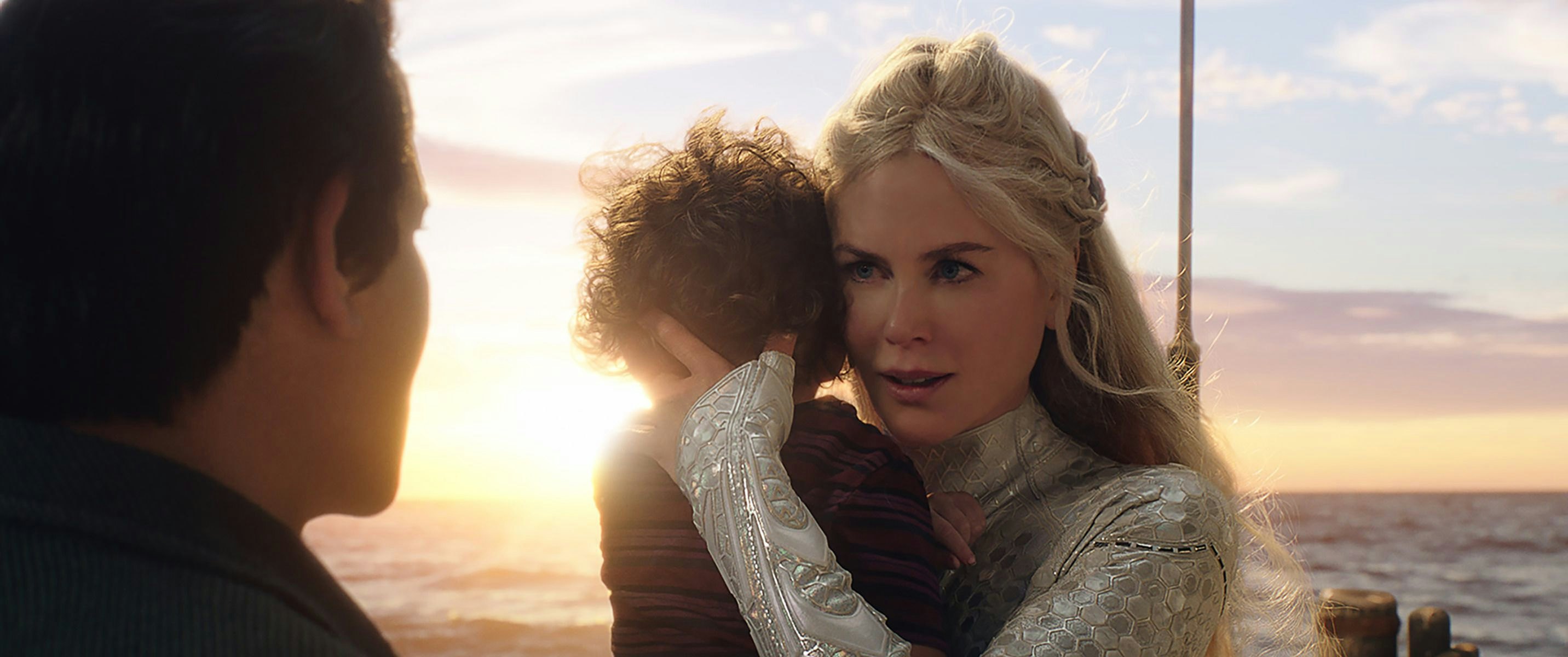
DC’s Extended Universe is done. It’s been a long, slow march to the end of the line, and it feels like a lifetime has passed since the superhero saga lost its steward in Zack Snyder, even as the DCEU tried (and often failed) to spin his “mature” style into something more palatable and profitable.
Some of the franchise’s biggest successes came from films that didn’t subscribe to Snyder’s gospel. Aquaman, arguably the DCEU’s first hit (it was the first to make $1 billion worldwide), worked because it felt nothing like a Snyder movie at all.
Such a box office takeaway is nothing to sneeze at, but it seemed to come out of nowhere. Its success, however, has a deceptively simple explanation: Aquaman is just fun. Wacky, zany, turn-your-brain-off fun.
Jason Momoa is Arthur Curry, gleefully embracing his role as a vigilante Aquaman, but not yet ready to make peace with his past. His mother (Nicole Kidman) was once the queen of the underwater kingdom of Atlantis; she met and fell in love with his landlubber father (Temuera Morrison), and returned to the sea against her will shortly after giving birth to Arthur. He never saw or heard from her again, save to learn that she’d apparently been executed for her tryst with a human. Needless to say, he’s got a major chip on his shoulder.
The circumstances of Arthur’s birth are just the beginning of his complicated relationship with Atlantis. Regardless of his feelings, though, Arthur has a responsibility to protect the kingdom from the humans polluting the ocean beyond repair, and his power-hungry half-brother Orm (Patrick Wilson). Orm has become ruler of Atlantis in the wake of the last king’s demise, and he’s about to unite the four underwater kingdoms to conquer the surface world. Arthur is the only man standing between Orm and the only home Arthur’s ever known. To defeat Orm, he’ll have to take his rightful place as king of Atlantis and embrace the past he’s always ignored.

Aquaman was a mixed bag in the best possible way. Director James Wan largely abandoned the overwrought darkness of the SnyderVerse — and the frothy weightlessness of Marvel’s universe — in search of something more. He found it in the technicolor world of Atlantis. It’s held together with a baffling disregard for underwater logic, but it’s impossible to look away from.
DC wisely chose to pluck its bro-iest hero out of the Justice League and throw him into the deep end of a battle for Atlantis. His origin story cherry-picks from some of the most beloved superhero stories — Marvel’s Black Panther and Thor: Ragnarok, especially — to tell a coming-of-age tale in an entirely new world. Spectacle abounds, at times to the detriment of its characters, but the vibes are immaculate.

Aquaman represents a throwback to the psychedelic sensibilities of the early 2000s, and after the decades-long domination of high-stakes worldbuilding and hyper-serious slugfests, a return to form was more than welcome. Even now, as its sequel struggles to make a dent at the box office, Aquaman is phenomenally fun to revisit.
The DCEU may be gone, but it lives on as an interesting experiment. Its highs — Aquaman, Wonder Woman — gave us a glimmer of the exciting superhero franchise it could have been. While these heroes now face an uncertain future, adventure like that is still within DC’s grasp. Aquaman proved it was possible, and rather than sink beneath the waves it could serve as a blueprint for the new phase of the DC Universe.







